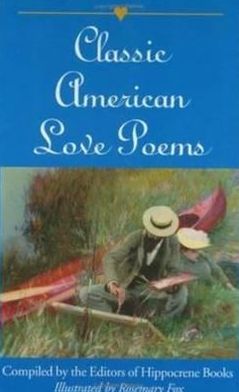Relationship Quotes Funny Definition
Source(Google.com.pk)
Our two lives perfect they are not, but perfect we are together one love that will never stop.
You may not be perfect but you are perfect for me, and I'm grateful to call you mine!
I was your first everything and I hope to remain your last everything.
I
accept him, I love him, just as he is. He accepts me, loves me, just as
I am. We choose each other. everyday. It isn't puppies and rainbows and
cotton candy under a starry sky. But it's the biggest love that I've
ever known.
When I saw you, I was afraid to meet you. When I met you,
I was afraid to kiss you. When I kissed you, I was afraid to love you.
Now that I love you, I'm afraid to lose you.
The best moments of my life are the moments, that I spent along with you..
His
heart? I own that...His back? I got that...His weed? I roll that...My
baby? He knows that...My hands? He holds that...His role? He plays
that...They Jealous? We know that...We're Happy? They hate that.
The best boyfriend isn't the best-looking, the funniest, or the richest. It's the one that makes sure you know he loves you.
It's
sweet when someone remembers every little detail about you, not because
you keep reminding them... But because they pay attention.
You
make me smile,you make me laugh, you are the one who cheers me up. When
I am down you pick me up and when I frown you turn it upside down :)
You're someone who can always show me the brighter side, and I can always tell you what I feel inside.
RELATIONSHIP;
It's more than just the dates, holding hands and kissing. It's about
accepting each other's weirdness and flaws. It's about being yourself
and finding happiness together. It's about seeing an imperfect person
perfectly.
Relationships are like yard sales, they look really
fun from a couple hundred feet away, but then you realize its just a
bunch of crap you don't need.
I dont know what I'd do without you, I dont know where I'd be, your not just another boy, your everything to me.
Thing
I will never do is betray you. 2. Things I will always do is love and
cherish you. 3. Words I won't stop telling you I LOVE YOU.
My
days get better by talking to you, saying I love you is what I like to
say. If we broke apart I wouldn't know what to do, but being with you is
a miracle that I say every day.
When I'm with you I'm happy,
when we hug its like I dont ever want to let go, when you make me smile
it brings the sunshine out in me, when I see you and our eyes meet, its
like something i've never felt before.
I'll be your crying shoulder, I'll be love's suicide, I'll be better when I'm older, I'll be the greatest fan of your life.
We
fight, we cry, we laugh, and we know each other like the back of our
hands. Not only are you my best friend, but my significant other, and I
wouldn't change that for anything.
Relationship between two
person should be like the relationship between the hand and the eye. If
the hand gets hurt, the eye cries, and if the eye cries the hand wipes
its tear.
Let them talk, and talk and talk. Let them say what
they want. We will laugh at the thought they dont know what we've got.
Every year that goes by, a year older we are. You'll still be beautiful
then, bless your beautiful heart.
If it wasn't for you, my
life wouldn't have a purpose, you changed me for who I am and today I
could never forget that day and it will always remain that way.
I wanna be the one your ex will hate, your mom will love, and the one you'll never forget.
Your imperfections make you perfect, your insecurities make you secure, but your flaws...They make you flawless.
You
know he's the one when you're more than a year into the relationship
and you both can still talk to one another with as much excitement as if
it was on your first date :)
Out of the people that are in this world, I only want you. Out of all my past loves, you're the only one I really knew.
Dreaming
of you makes my nights worth while, just thinking of you makes me
smile. Being with you is the best thing ever and loving you is what I'll
do forever...
I promise to be there for you when you need me,
I promise to hug you tight when you're lonely, I promise to keep you,
not for the rest of my life but for the rest of yours because you are my
everything.
You don't have to promise me the moon or the stars, just promise you'll stay under them with me forever.
Relationship Quotes Funny
 |
| Relationship Quotes Funny |
 |
| Relationship Quotes Funny |
 |
| Relationship Quotes Funny |
 |
| Relationship Quotes Funny |
 |
| Relationship Quotes Funny |
 |
| Relationship Quotes Funny |
 |
| Relationship Quotes Funny |
 |
| Relationship Quotes Funny |
 |
| Relationship Quotes Funny |
 |
| Relationship Quotes Funny |
 |
| Relationship Quotes Funny |
 |
| Relationship Quotes Funny |





































